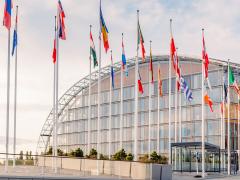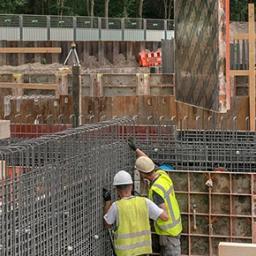Integrated Regional Europe
Currently, place-based development policies are proposed for future cohesion policy and have taken the shape of smart specialisation strategies. These strategies are one of the prerequisites to access Structural Funds as of 2014. Smart specialisation strategies are based on a systems way of thinking about innovation and growth and place a large emphasis on regional network data and analysis. However, crucial economic data on trade between regions are noticeably missing from European regional databases.
European Regional Trade Flows in 2000
PBL, therefore, developed a new methodology to determine interregional trade flows. This unique data set on trade between 256 European NUTS2 regions, for the year 2000, is presented in this paper. According to our findings, most trade takes place within one and the same region, although there are large sectoral differences. The data showed that globalisation in trade in the year 2000 was still limited with only a small percentage of goods and services being traded with countries outside Europe. The European regional economy, therefore, was found to be strongly interconnected, which is part of the explanation of the strong regional spillovers of the present economic crisis in Europe.
Authors
Specifications
- Publication title
- Integrated Regional Europe
- Publication date
- 20 June 2013
- Publication type
- Publication
- Publication language
- English
- Product number
- 1035




